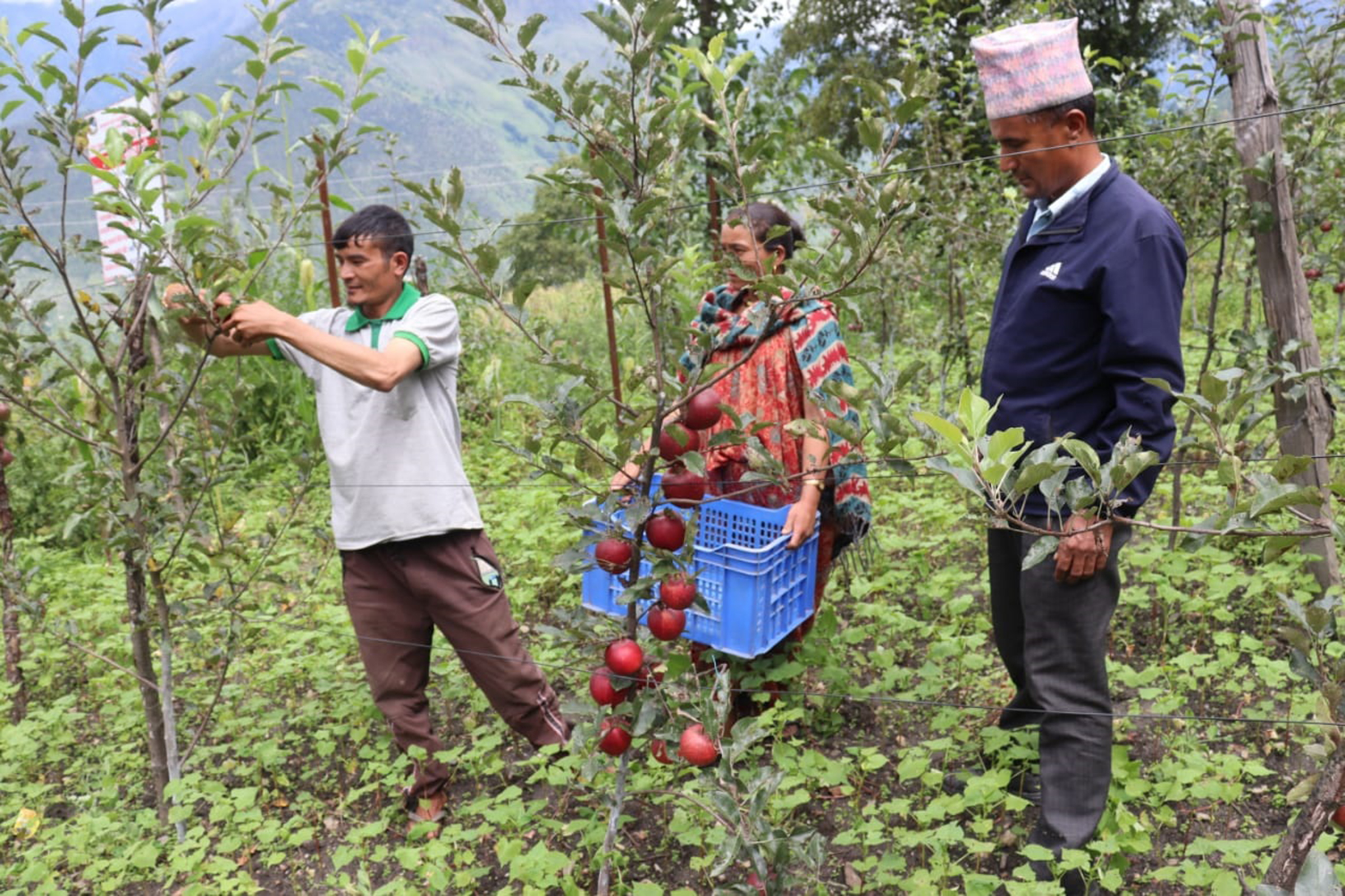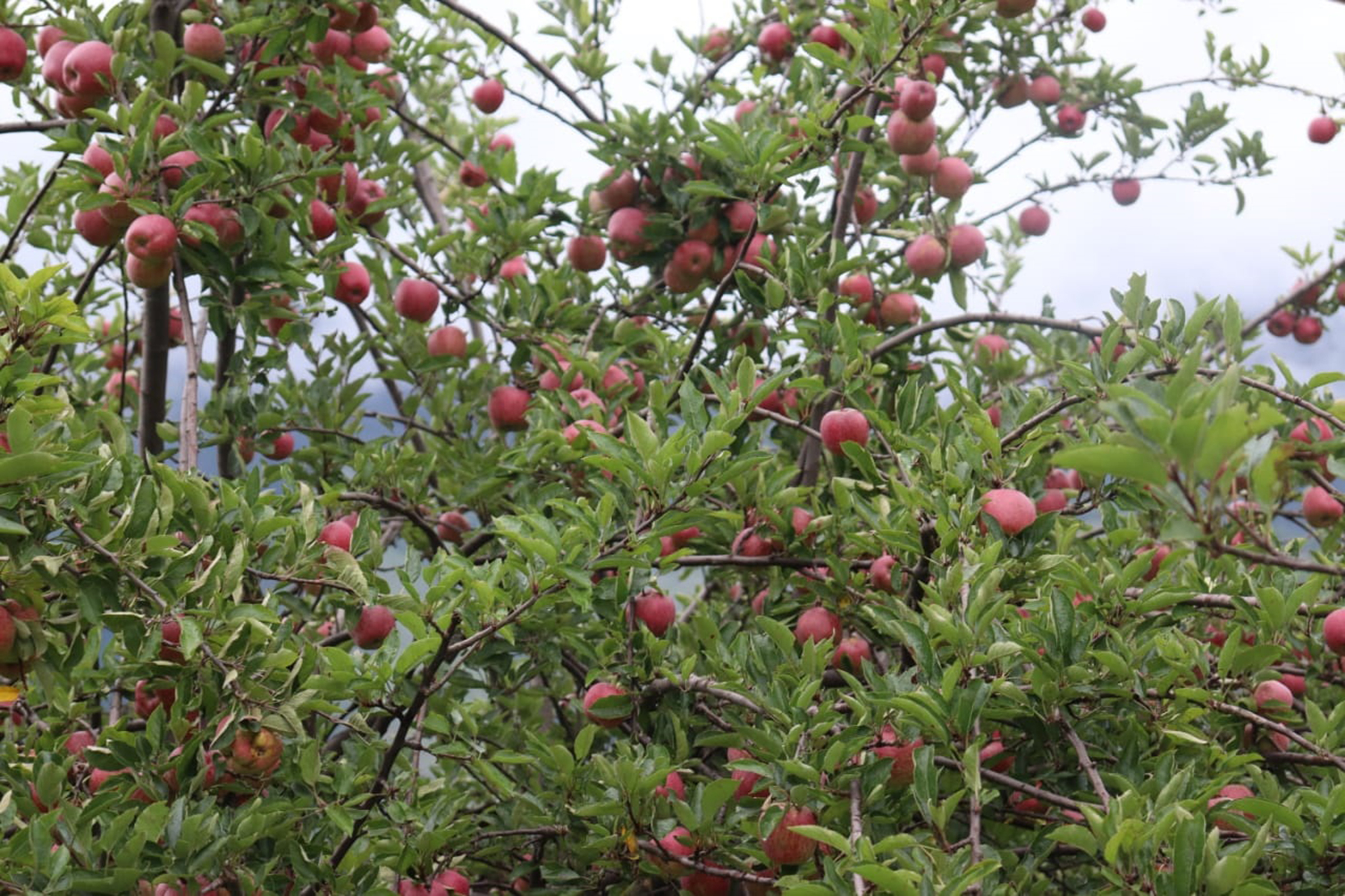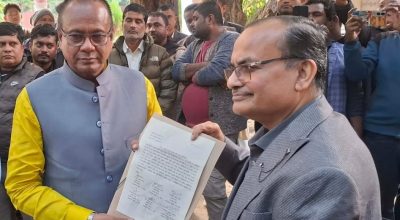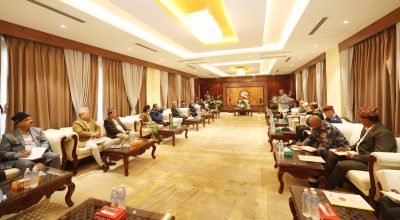
Mugu, Sept 1: Fuji apple production has started for the first time in the Himalayan district of Mugu. Previously, local apple varieties were being produced, but two years after the distribution of new apple plant varieties, production has begun.
Two years ago, the Prime Minister’s Agriculture Modernization Project distributed ‘Fuji Gava’ apple seedlings to farmers in Chhayanath Rara Municipality-5 and 4. Tej Bikram Malla, the Mayor of Mugu, mentioned that the climate in Mugu is suitable for growing apples of this variety. Necessary infrastructure such as plants, orchards, and technical support were provided by Agriculuture Office in Mugu.
According to Malla, apple plants typically start bearing fruit one year after planting, but the quality improves when they start producing after two years. He explained that many plants can be grown in a small area, resulting in a higher yield per plant.
While traditional apple varieties allow for 300 seedlings per hectare, Fuji apple seedlings can be planted up to 3000 per hectare. Although Fuji apple plants planted using this technique will bear fruit in one year, the initial batch may be of lower quality, with higher quality products in subsequent harvests.

In the fiscal year 2079-80 BS, the Prime Minister’s Agriculture Modernization Project Implementation Unit in Mugu provided 800 seedlings to two agricultural firms under the High Density Apple Demonstration Program, with a 50% subsidy for the commercial production of Fuji apples.
In Chhayanath Rara Municipality-4, Musechaur Agricultural Office received 500 seedlings, while Ward 5 Saksham Agricultural Office received 300 seedlings. Each plant has yielded 5 to 8 kg of apples this year.
Man Bahadur Bham, the owner of Musichaur Farm, noted that farmers received high demand of these apples and good prices as compared to other varieties. He emphasized that Fuji apple plants produce fruit quickly and consistently, making them ideal for commercial apple farmers.
Local businessman Jas Bahadur Budha also highlighted the financial benefits of growing Fuji apples, stating that the rewards are higher proportional to the labor invested. He added that the ability to plant more trees in a smaller area is advantageous.
The project implementation unit distributed 900 seedlings in the year 2080/81 BS and aims to distribute 3000 Fuji apple seedlings this year 2081/82 BS with a 50% subsidy.
Tej Bikram Malla, the unit’s head, mentioned that traditional apple trees produce fruit for a maximum of 10 years, while Fuji apple trees can bear fruit for at least 15 years, and up to 20 years with proper care.
Farmers in Mugu have earned over five lakh rupees this year solely from the production of Fuji apples.
What is Fuji apple?
According to Wikipedia.org, Fuji apples are typically round and range from large to very large, averaging 75 millimetres (3.0 in) in diameter. They contain from 9–11% sugars by weight and have a dense flesh that is sweeter and crisper than many other apple cultivars, making them popular with consumers around the world.
Fuji apples also have a very long shelf life compared to other apples, even without refrigeration. With refrigeration, Fuji apples can remain fresh for up to a year.
















